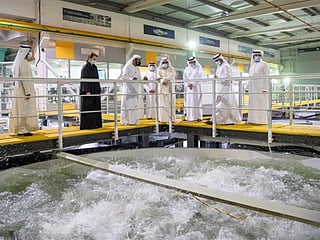Real estate returns will get selective bump
Any asset with contracted leases will remain winners in the long-term

Also In This Package
The pandemic has triggered global policy responses to mitigate the health impact of the virus. It has also sparked an economic and financial crisis, presenting significant consequences for real estate markets and demanding calculated responses from asset and portfolio managers.
Capital markets could also see significant impact, as turbulence in the financial market generates transaction opportunities - if a level of stress among real estate investors leads to the potential to recapitalize otherwise sound real estate.
Temporary cessation
Usually, analysing the health of the economy and employment is a guidance to real estate demand, but this is difficult under the current circumstances. Historically, most short recessions and natural disasters/epidemics have been followed by sharp recovery. However as nobody knows the pandemic’s length, and the efficacy of policy responses, we cannot know the recovery length either.
Forecasters predict the global economy will sharply contract in second quarter, potentially the largest ever such contraction.
In many ways, for direct real estate, it is unnecessary to estimate the scale of the impact, as the consequences of such a black swan event on demand are unclear. We must instead analyse the shape and timing of the disruption.
How long?
If the virus carries on into second-half of the year, pent-up demand will drive recovery. Occupier markets will recover gradually, with hotels and retail values remaining under pressure. Should the virus persist until a vaccine is found, then it’s likely that stimulus will be needed, meaning occupier markets weakness will last longer, and values be under pressure across all sectors.
Real estate funding dynamic
The immediate impact on real estate capital has been through the debt markets. Although central banks’ emergency cuts in interest rates lowered borrowing costs, we saw a sharp increase in corporate debt yields, reflecting the market’s instability. This meant less liquidity and higher lending margins, causing a spike in total lending costs. Furthermore, the disruption to daily life has caused a curtailment in transaction activity with delays, cancellations and re-pricing emerging.
Throughout the GCC, governments acted quickly to support the real estate sector through economic stimulus measures. In the UAE, a targeted economic support scheme worth Dh100 billion was launched, and some local banks increased the loan-to-value for first-time buyers by 5 percent. Government and large privately-owned real estate companies are working closely with tenants on offering respite from rental payments across different sectors.
Don’t jump to price conclusions
While there’s limited transactional evidence of the impact on direct real estate pricing, the implied asset pricing in global real estate investment trust (REIT) markets is another matter. However, it is unwise to estimate the scale of implied price decline given the volatility of the financial markets; in previous recessions the decline in prices was half that implied by the listed market.
McKinsey research notes the density of human interaction in a property sector appears to be more closely related to the decline in REIT prices than lease length. REIT prices for lodging, healthcare and malls have decreased more than specialty sectors like data centers, while industrial, office and apartments sit somewhere in between.
A back to basics
An economic divide is coming that must be bridged by huge fiscal and monetary policy measures. As we overcome the crisis, we must defend against near-term cyclical risks, while taking advantage of long-term structural trends. A prudent investment strategy for real estate should include three main themes:
1. Cash is king: Placing a focus on cashflow management.
2. Care for capital: Communicating with investors and paying attention to loan covenants, carrying out stress tests, and maintaining low levels of long-duration leverage.
3. Pursue opportunities: Acting quickly when suitable opportunities arise in sectors that have positive long-term prospects.
We should focus on specific sub-market combinations where values and opportunities should hold up better if they reprice. There are many real estate themes that flow from secular trends in technology and demography, such as logistics, offices, and multi-family. Building climate change into real estate strategies will remain a key priority over the next decade.
The pandemic caused a massive disturbance in the global economy. Until the path becomes clearer, we cannot predict the depth of the slowdown or shape of the recovery. Among asset classes, real estate at its core is long-term.
Post-coronavirus, in an era of low inflation, interest rates and growth, the income return from real estate, secured on contractual leases, is likely to prove very attractive to investors.
- Josette Rizk is Client Director at Invesco Middle East and Africa.
Sign up for the Daily Briefing
Get the latest news and updates straight to your inbox








